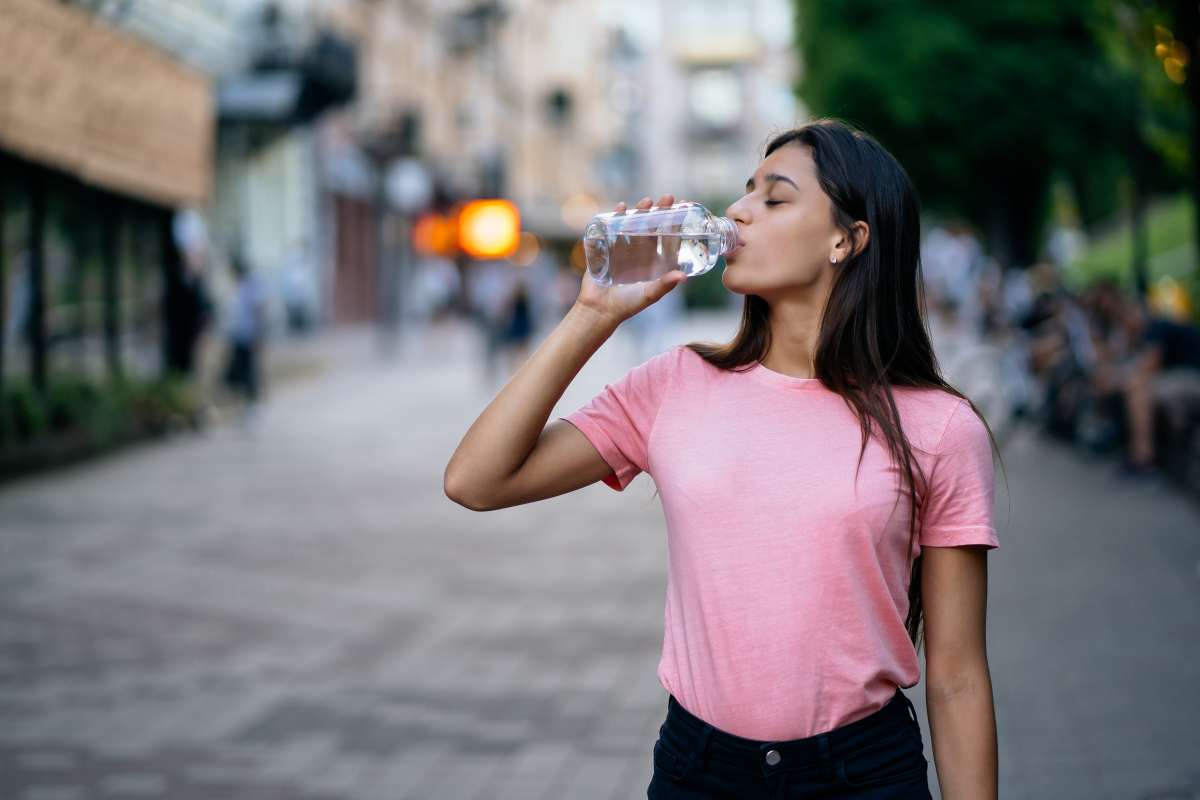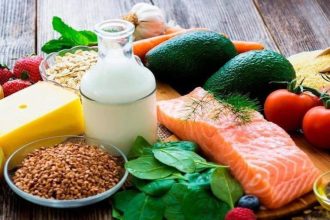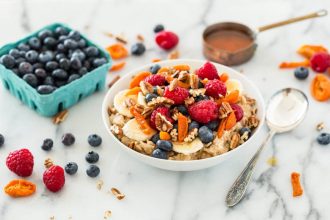The Day I Realized I Was Dying of Thirst
It was a Tuesday morning in March, and I was sitting in my doctor’s office, feeling like a complete failure. I had been experiencing headaches, fatigue, and brain fog for weeks, and I was convinced something was seriously wrong with me. The doctor ran some tests, and when the results came back, I was shocked.
“You’re dehydrated,” she said matter-of-factly, as if this was the most obvious thing in the world.
“Dehydrated?” I repeated, confused. “But I drink water all the time. I have a water bottle on my desk right now.”
She smiled and asked me a question that would change everything: “How much water do you actually drink in a day?”
I thought about it. I had my water bottle, sure, but I was constantly refilling it and never really tracking how much I was drinking. I was probably drinking… maybe 3 or 4 glasses? Maybe?
“Not enough,” she said, looking at my test results. “Your body is literally crying out for water, and you’re not listening.”
That day, I learned that dehydration isn’t just about feeling thirsty. It’s about your body not having enough water to function properly, and the effects can be devastating.
The Myths I Believed About Water
Before I could fix my hydration problem, I had to unlearn everything I thought I knew about water intake.
Myth #1: “8 glasses a day is enough”
I had heard this rule my entire life, but I never questioned whether it was actually true for me. Turns out, the “8 glasses a day” rule is a one-size-fits-all approach that doesn’t account for individual differences in body size, activity level, or climate.
Myth #2: “If you’re not thirsty, you don’t need water”
This was my biggest mistake. By the time you feel thirsty, you’re already dehydrated. Thirst is your body’s last-ditch effort to get water, not its first signal.
Myth #3: “Coffee and tea count as water”
While these beverages do contain water, they also contain caffeine, which is a diuretic. This means they actually cause your body to lose water, not gain it.
Myth #4: “You can’t drink too much water”
This is actually dangerous. While rare, it is possible to drink too much water, which can lead to a condition called hyponatremia. The key is finding the right balance.
The Science That Changed My Understanding
My doctor explained that water makes up about 60% of our body weight and is involved in virtually every bodily function. When we’re dehydrated, our bodies can’t function properly, leading to a cascade of problems.
What Happens When You’re Dehydrated:
- Your blood becomes thicker, making your heart work harder
- Your brain shrinks slightly, affecting cognitive function
- Your joints don’t have enough lubrication, leading to stiffness
- Your skin becomes dry and less elastic
- Your kidneys can’t filter waste properly
- Your metabolism slows down
The Signs I Was Ignoring:
- Headaches that wouldn’t go away
- Fatigue that coffee couldn’t fix
- Brain fog and difficulty concentrating
- Dry skin and brittle nails
- Constipation and digestive issues
- Mood swings and irritability
The Experiment That Changed Everything
My doctor challenged me to a 30-day hydration experiment. I was to track my water intake carefully and see how it affected my health and energy levels.
The Rules:
- Drink half my body weight in ounces of water per day
- Track every sip in a hydration app
- No coffee or tea for the first week (to see the difference)
- Eat water-rich foods like fruits and vegetables
- Monitor how I felt throughout the day
Week 1: The Withdrawal
The first week was brutal. I was tired, irritable, and constantly craving coffee. But I was also drinking more water than I ever had in my life, and I started to notice some changes.
Week 2: The Awakening
By the second week, I started to feel different. My headaches were less frequent, and I had more energy in the afternoon. I was sleeping better, and my skin was starting to look healthier.
Week 3: The Transformation
By the third week, I felt like a completely different person. I had steady energy throughout the day, my brain fog was gone, and I felt more alert and focused. I was sleeping better, my skin was glowing, and I just felt… good.
Week 4: The New Normal
By the fourth week, proper hydration had become a habit. I no longer had to think about it; I just naturally reached for water throughout the day. I felt like I had unlocked a secret to better health.
The Formula That Actually Works
After my experiment, I learned that there’s a more accurate way to calculate your water needs:
The Basic Formula:
- Take your body weight in pounds
- Divide by 2
- That’s how many ounces of water you should drink per day
For example:
- If you weigh 140 pounds, you should drink 70 ounces of water per day
- If you weigh 180 pounds, you should drink 90 ounces of water per day
Adjustments for Activity Level:
- Add 12-16 ounces for every hour of exercise
- Add 8-12 ounces for every hour in hot weather
- Add 8-12 ounces for every hour of air travel
Adjustments for Health Conditions:
- Pregnant women need extra water
- Breastfeeding mothers need extra water
- People with certain medical conditions may need to adjust their intake
The Tools That Made It Possible
The Hydration App:
I downloaded a hydration tracking app that reminded me to drink water throughout the day. It was like having a personal hydration coach.
The Water Bottle Strategy:
I invested in a high-quality water bottle with measurements on the side. This made it easy to track how much I was drinking.
The Morning Routine:
I started every day by drinking 16-20 ounces of water before I even got out of bed. This kick-started my hydration for the day.
The Meal Strategy:
I made sure to drink a full glass of water with every meal and snack. This helped me stay hydrated and feel more satisfied.
The Foods That Helped
I learned that about 20% of our daily water intake comes from food, so I focused on eating water-rich foods:
High-Water Foods:
- Watermelon (92% water)
- Cucumber (96% water)
- Lettuce (96% water)
- Tomatoes (94% water)
- Oranges (87% water)
- Yogurt (85% water)
The Impact:
Eating these foods helped me stay hydrated and provided additional nutrients. I felt more satisfied and had more energy throughout the day.
The Challenges I Faced
The Bathroom Problem:
Yes, drinking more water means more trips to the bathroom. But I learned that this is actually a good sign – it means my kidneys are working properly and filtering waste.
The Social Awkwardness:
I had to explain to friends and colleagues why I was constantly drinking water and going to the bathroom. Most people were supportive, but some thought I was being excessive.
The Cost:
I was going through water bottles and filters faster than before, but I considered it an investment in my health.
The Habit Formation:
It took time to build the habit of drinking enough water. I had to be patient with myself and not give up when I forgot.
The Unexpected Benefits
As my hydration improved, I started noticing benefits I never expected:
Better Skin:
My skin became clearer, more elastic, and had a natural glow. People started commenting on how healthy I looked.
Improved Sleep:
I slept more deeply and woke up feeling more rested. I had fewer night sweats and felt more comfortable in bed.
Better Digestion:
My digestive system started working more smoothly. I had fewer stomach issues and felt more comfortable after meals.
Enhanced Mood:
I felt more stable emotionally and had fewer mood swings. I was more patient and less irritable.
Increased Energy:
I had steady energy throughout the day instead of the peaks and valleys I was used to.
The Maintenance Strategy
Once I reached optimal hydration, I had to figure out how to maintain it:
The Daily Routine:
- Start with 16-20 ounces of water in the morning
- Drink a glass of water with every meal
- Set reminders to drink water throughout the day
- End the day with a glass of water before bed
The Monitoring System:
- Track my water intake daily
- Pay attention to my body’s signals
- Adjust based on activity level and weather
- Regular check-ins with my doctor
The Flexibility:
- Allow for variations based on my schedule
- Don’t stress about perfect days
- Focus on overall trends, not daily perfection
- Make adjustments as needed
The Lessons I Learned
Listen to Your Body:
Your body will tell you what it needs if you pay attention. Don’t ignore the signals.
Start Small:
You don’t have to change everything at once. Start with one extra glass of water per day and build from there.
Be Patient:
It takes time for your body to adjust to proper hydration. Don’t expect immediate results.
Make It Personal:
What works for someone else might not work for you. Find what works for your body and lifestyle.
The Hope I Want to Give You
If you’re reading this and feeling tired, foggy, or just not quite right, I want you to know that proper hydration might be the missing piece. You don’t have to live with the symptoms of dehydration.
Start with one extra glass of water per day. See how it makes you feel. Your body will thank you, and you might be surprised by how much better you feel.
The journey from dehydration to optimal hydration starts with a single sip. Take that sip today, and see where it leads you.








